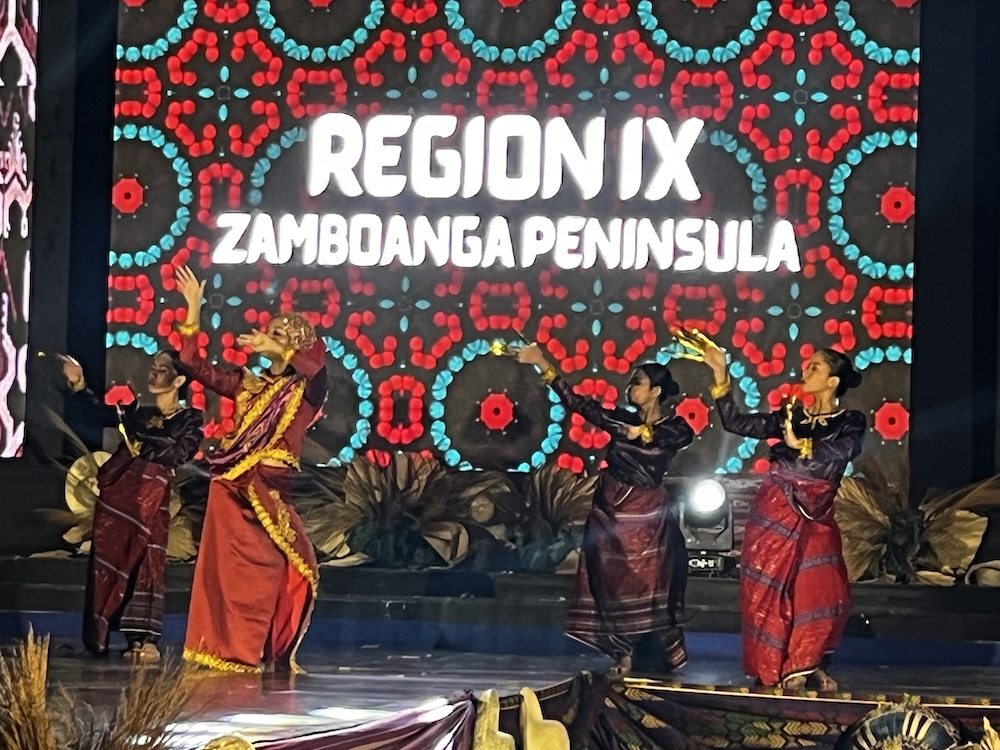
Out of Town Blog
Finding Direction in Dipolog: Notes from a Journey of Pleasant Surprises
There are trips you plan down to the minute—and there are trips that unfold like an unscripted story. My recent visit to Dipolog City, Zamboanga del Norte, courtesy of the Department of Tourism – Zamboanga Peninsula, was the latter.

The itinerary arrived late, accommodations were unconfirmed, and by the time our early morning flight from Manila landed, I found myself in a city I’d never been to, waiting for instructions that hadn’t yet arrived. Still, what followed was a reminder that even without a clear plan, good people and genuine hospitality can steer the journey.

It was my first time in Western Mindanao, a region often overlooked in mainstream travel itineraries. Dipolog, host of this year’s Mindanao Tourism Expo (MTEx), is a study in contrasts—less famous than its twin city Dapitan, yet brimming with quiet potential. Dapitan carries a legacy of heritage tourism—Dakak Beach Resort, the Rizal Shrine, and the story of Dr. Jose Rizal’s exile as doctor, teacher, and resident. Dipolog, meanwhile, is still defining itself: humble, a bit rough around the edges, but sincere in its pursuit of sustainable growth and regional cooperation.



An Emerging City with Quiet Ambition
Spanning 76.8 square kilometers, Dipolog is framed by rivers, hills, and coastlines that ripple toward the Sulu Sea. The P’gsalabuk Circle Fountain, symbolizing the unity of Christians, Muslims, and Subanen (“people of the river”), greets visitors from the airport.




The city’s economy runs on coconut, rice, sardines, and handicrafts, but its strength lies in its people—warm, grounded, and proudly local. Despite the hectic MTEx preparations, tourism officers met us with warmth and grace, setting the tone for a trip that would reveal a province coming together.

A Marathon and a Movement
The Mindanao Tourism Expo 2025 coincided with Dipolog’s first marathon, attracting runners from across the country. The Dipolog City Boulevard, a scenic seaside promenade, hosted the opening led by Tourism Secretary Christina Frasco.

Participants joined a “running tour” through tourism booths, then visited Punto del Disembarco, where Rizal first set foot during exile, followed by Balay Hamoy and the Rizal Shrine in Talisay, a 17-hectare estate he bought with lottery winnings.

The day ended with “Runway of Roots: Threads of Tradition, Magnifying Distinction,” a cultural showcase of regional designers and artists that proved Mindanao’s creativity is as vibrant as its landscapes.
A Journey Through Zamboanga del Norte
Day 2 took us beyond city limits—a reminder that Dipolog is not the destination alone, but the hub connecting Zamboanga del Norte’s emerging attractions.





At Nelsa’s Agri-Tourism Farm in Mutia, we picked calamansi and guyabano before cooling off with fruit shakes. In Tagaytay, Tuburan, Sergio Osmeña Sr., Gantaw Hills Flower Garden and La Presa Strawberry Farm offered cool air and rolling hills reminiscent of the more famous Tagaytay. A partnership with La Trinidad, Benguet is helping locals cultivate strawberries, showing how tourism here blends livelihood, learning, and leisure.

Our first stop after was Nikka’s Ridge, followed by lunch at Falls Viewpoint in neighboring Tinindugan. A notable stairway to heaven, view decks, and winding pathways make these stops ideal for slow walks and photos. Some compare the scenery to Sa Pa, Vietnam, but comparisons miss the point—Zamboanga del Norte’s charm lies in authenticity and collaboration.

Growing Pains and Bright Hopes
Our group stayed in different accommodations; mine was Manuel Resort, along the Dipolog–Polanco–Oroquieta Road in Piñan. Between long days, shifting schedules, and spotty data (digital nomads, take note), I learned that serenity and patience are part of the rhythm here.


That evening, the Dipolog Coffee Festival and Food Hub came alive with the region’s culinary pride—sardines, seafood, rice delicacies, fruit wines, and native coffee brewed to perfection. The night ended with a youth-led cultural show featuring performers from Regions IX to XII and BARMM, proving that heritage here isn’t just preserved—it’s evolving.


Though my trip ended before the Coastal Clean-Up, it was clear that Dipolog and its neighboring towns are charting their course carefully. New roads are opening, the airport is expanding, and sustainability is quietly taking root.
It may not yet have Dapitan’s reputation, but the whole of Zamboanga del Norte’s promise is undeniable. Dipolog City isn’t trying to be its twin—it’s becoming the gateway to a province finding its voice together. With continued collaboration, it can shape itself into a sports, wellness, and serenity destination—a Mindanaoan crossroads where travelers can slow down, reconnect, and rediscover balance.
Manila Travel Tour Packages You Should Try
Klook.com
(function (d, sc, u) {
var s = d.createElement(sc),
p = d.getElementsByTagName(sc)[0];
s.type = “text/javascript”;
s.async = true;
s.src = u;
p.parentNode.insertBefore(s, p);
})(
document,
“script”,
“https://affiliate.klook.com/widget/fetch-iframe-init.js”
);
Follow and Subscribe to OutofTownBlog.com on Facebook , Twitter, Instagram, Pinterest, and YouTube for more Travel related updates.
Finding Direction in Dipolog: Notes from a Journey of Pleasant Surprises
Christine Rodriguez
Out of Town Blog
